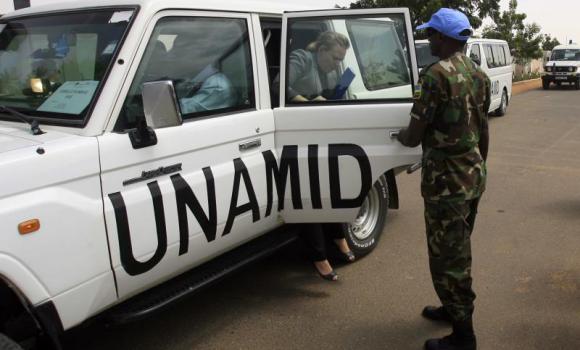CAIRO: Misr University for Science and Technology (MUST) invited 22 private African universities from nine countries – Kenya, Sudan, Uganda, Rwanda, Ghana, Zimbabwe, Congo, Cote D’ivore, and Nigeria – to set the cornerstone of the African Union of Private Universities (AUPU).
These countries will be the first nine members of the union.
A MUST statement described the launch of the union as and Egyptian-led “step forward to lead African countries into a new educational scientific research era drawing the path for the AUPU.
Since Africa now is experiencing tremendous changes accompanied by major challenges like the crisis of food, the energy problem, and the spread of disease, higher education proved to be a very important tool for facing these challenges offering the solutions through the generation and dissemination of knowledge and scientific research.
Professors from private universities stressed on the importance of constituting such union to find solutions for the challenges facing private higher education all over Africa.
The AUPU is mainly concerned with the sustainable development of Africa through private higher education.
The African private universities vice chancellors agreed on 10 main principles to build the AUPU upon them.
It aims to promote and strengthen social and community awareness of the vital role of the private higher education in Africa. It also aims to fight poverty, illiteracy, disease, and environmental degradation by contributing effectively in the community through specialized programs focused on vulnerable groups of society, especially women and children.
The list of objectives also includes: conducting scientific research and encouraging all members of the Union to cooperate in joint projects to achieve the mission of the union; encouraging student exchange programs between member institutions to enable them to explore new cultures and disciplines; fostering faculty exchange programs for research, publication, development, patenting and sharing resources; and mentoring and nurturing new private higher educational institutions.
The union would also promote collaboration among member institutions in curriculum development, post graduate training and establish joint and dual degree programs to ensure the academic freedom for students and joint collaboration for scholars.
AUPU would also be responsible for mobilizing resources for assistance to any member university to overpass any critical situation. The resources shall be regulated by special byelaws to be defined from the General Conference of the union.
AUPU will establish an African accreditation and Quality Enhancement Commission to maintain international recognition of academic and professional degrees offered individual member institutions.
According to the press statement, the union will serve as a think-tank for the governments and peoples of Africa for leadership training in charting the direction, content, and pace of higher education programs and research for relevance to industrial, social, environmental, and scientific development of the continent.
At their final discussion, all members agreed on choosing MUST’s Board of Trustees Chairman Khaled Al-Toukhy to be the first President of the AUPU and the chosen board members are: Prof. Aliou Mané, from Universite De L’atlantique, Abidjan, Cote D’ivore; Prof. Anthony Osagie, from Benson Idahosa University, Benin City, Nigeria; Prof. Emmanuel Kingsly Larbi, from Regent University Of Science & Technology, Accra, Ghana; Dr. Abbé Faustin Nyombayire, from Institut Polytechnique De Byumba, Byumba, Rwanda; Prof. J.A. Kayode Makinde, from BABCOCK UNIVERSITY, Ilishan-Remo, Nigeria; Prof. K.B. Omane-Antwi, from Pentecost University, Accra, Ghana; Prof. Leah Marangu, from Africa Nazarene University, Nairobi, Kenya; Prof. Monica Mweseli, from Kiriri Women’s University Of Science & Technology, Nairobi, Kenya.


